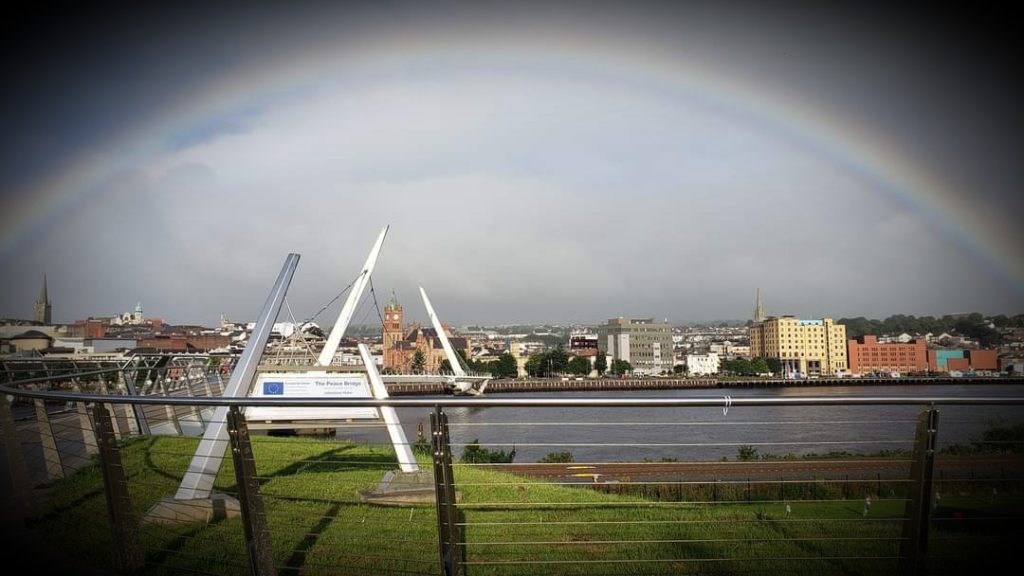
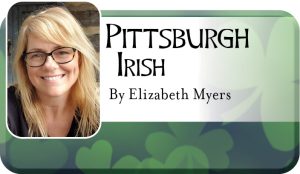 Pittsburgh Irish: May a Lasting Peace be Unto You
Pittsburgh Irish: May a Lasting Peace be Unto You
By Elizabeth Myers
This is a true story, as luck would have it. Imagine yourself on a plane for six hours, flying 3,000 miles across the Atlantic Ocean, and then driving three hours from Dublin to the rural West of Ireland and the rugged Wild Atlantic Way … only to meet a professor from Pittsburgh who lives a few streets from you? Over the summer I recently had the opportunity to spend time in the good company of Peter Gilmore, Ph.D., who has studied the impact of Irish emigration on American society and taught history at classic institutions in the Oakland neighborhood of Pittsburgh.
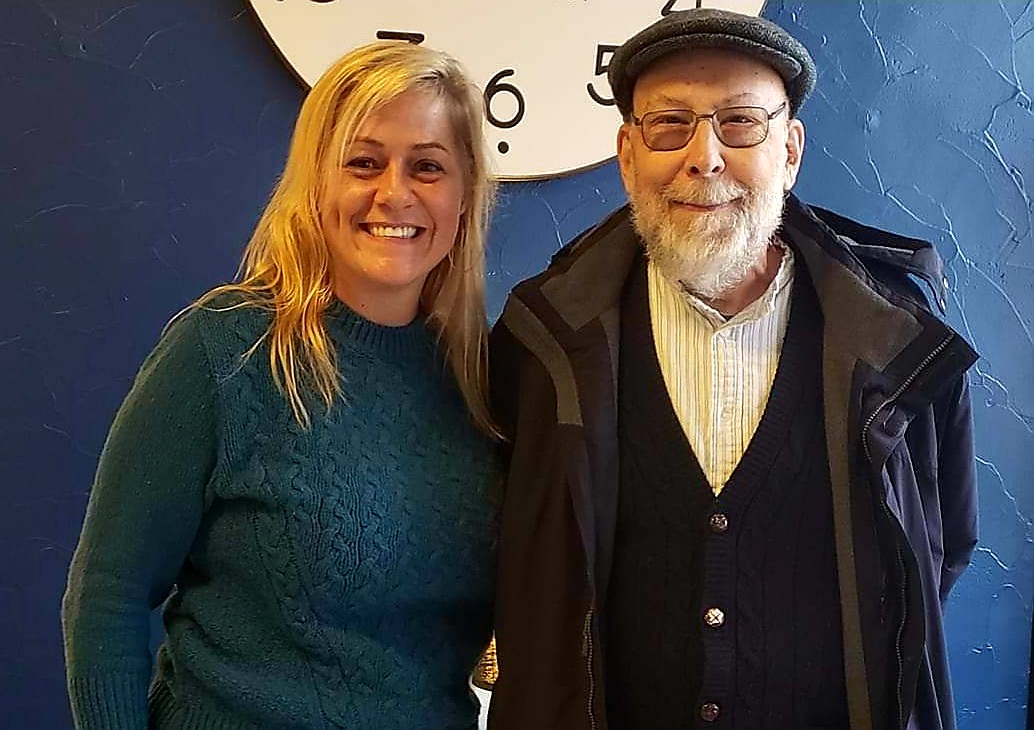
Dr. Gilmore and I drove across the Connacht and Ulster provinces into Northern Ireland and Derry together, where he led me on a walking tour along the city walls and the iconic murals that mark the path from civil unrest to peace. We visited the new and greatly expanded facilities of The Museum of Free Derry (TMOFD), a private curation maintained by the survivors and relatives of those murdered on Bloody Sunday in Derry’s Bogside neighborhood.
We talked with the staff who created the exhibits, including Mr. John Kelly, who narrates all TMOFD’s digital content and documentary films. John’s brother Michael was shot and killed while standing by a barricade on Rossville Street. He was seventeen years old. Of the thirteen people who murdered on January 30, 1972, many were young people: seven teenagers in all.
Derry and Pittsburgh
Derry today is a city enduring the post-pandemic economic challenges, just like Pittsburgh and every other city in the world. But Derry has a unique and deeply meaningful place in the history of Ireland, and in the world. Derry’s story cuts into the marrow.
I was a young journalist and recent graduate of Point Park University when President Bill Clinton made history as the first American President to visit Northern Ireland, once the seat of deep struggle and violent strife that made national headlines for most of my life. Peace was achieved on April 10, 1997.
Gaeltacht
Dr. Gilmore also introduced me to instructors and the staff librarian at Culturlann, an urban Gaeltacht community center, where the Irish language and traditional Irish folk artforms are shared with both children and adults. Having spent much of the summer in the Irish countryside and visiting the Irish speaking enclaves along the Wild Atlantic Way, I was surprised to learn of a Gaeltacht in such an urbanized area, outside of a university setting such as Belfast and Dublin.
“I find myself continually surprised,” said Dr. Gilmore, who has spent fifty years pursuing research in the field of social history, specifically the impact of Ulster immigrants on the United States. An adjunct lecturer in history as Carlow University, he has taught courses on the history of the British Isles and Irish American History since 2010.
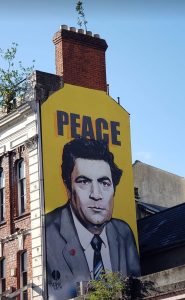 Dr. Gilmore came to Carlow after teaching Irish history and the history of Antebellum United States at Carnegie Mellon University, where he earned a doctorate in social and cultural history in 2009, and a master’s in history in 2002. He began his pursuit of history at the University of Bridgeport in Connecticut, where he graduated with a Bachelor of Arts in 1972, the same year as Derry’s Bloody Sunday. Dr. Gilmore also teaches history courses for adult learners at the University of Pittsburgh and has coordinated many Irish language learning activities in the area over the last two decades.
Dr. Gilmore came to Carlow after teaching Irish history and the history of Antebellum United States at Carnegie Mellon University, where he earned a doctorate in social and cultural history in 2009, and a master’s in history in 2002. He began his pursuit of history at the University of Bridgeport in Connecticut, where he graduated with a Bachelor of Arts in 1972, the same year as Derry’s Bloody Sunday. Dr. Gilmore also teaches history courses for adult learners at the University of Pittsburgh and has coordinated many Irish language learning activities in the area over the last two decades.
Many locations across Western Pennsylvania and specifically in Pittsburgh reflect placenames of townlands, parishes, counties and divisions on the island that is Ireland, including Irish and Scottish surnames and notable figures in history from both nations. Most Americans of Irish heritage may be familiar with The Great Hunger of the mid-1840s, which resulted in waves of Irish people emigrating from Ireland to North America.
Penal Laws
But it was not just those of Catholic faith who were escaping hardship and religious intolerance. The Penal Laws of the late 1700s and early 1880s created “an established elite” among The Church of England “by limiting the influence of Catholics, Presbyterians, and other Dissenters,” according to an exhibit that caught Dr. Gilmore’s eye during our recent visit to The Museum of Free Derry.
Hedge School
Much like how Mass was outlawed, so priests moved up into the mountains to give communion, the Irish language, stories and songs were only taught in whispers among the hedges – legal restrictions were applied to other denominations as well, according to Dr. Gilmore, “It was even illegal for Presbyterian ministers to conduct weddings and marry people in Ireland,” he said in a recent interview near our homes in the South Hills.
With a broad smile he admitted, “I am obsessed with the connections between the British Isles, America and the geographic match-ups.” His areas of research and expertise lie in lexicology (the study of the origin and meaning of words), placenames, and music. “My argument is that in Pittsburgh, in the 1800s, the majority of immigrants have been Scots Presbyterians who were born in Ireland and emigrated from Ireland– and not Scotland.” asserted Gilmore.
“Census records actually indicate many Scottish surnames that prevalent in Ireland at the time.” According to his review of letters and documents dated between the late 1700s and 1800s, roughly thirty percent of the immigrant population in Pittsburgh could be identified as Scots Presbyterians. While not as well-known as the Irish Catholic majority here, the identity of Scots Presbyterians and others who emigrated under the same duress of religious persecution are more than a vital statistic. They are a vital part of the Irish American identity in the story of Pittsburgh.
Dr. Gilmore writes extensively about the Ulster diaspora in the United States. His most recent publication is ‘Irish Presbyterians and the Shaping of Western Pennsylvania, 1770-1830’ published by the University of Pittsburgh Press in 2008, and a paperback edition in 2020. He is currently working a on chapter on Ulster Presbyterians for a new book on Irish American History, due to go to press late next year.
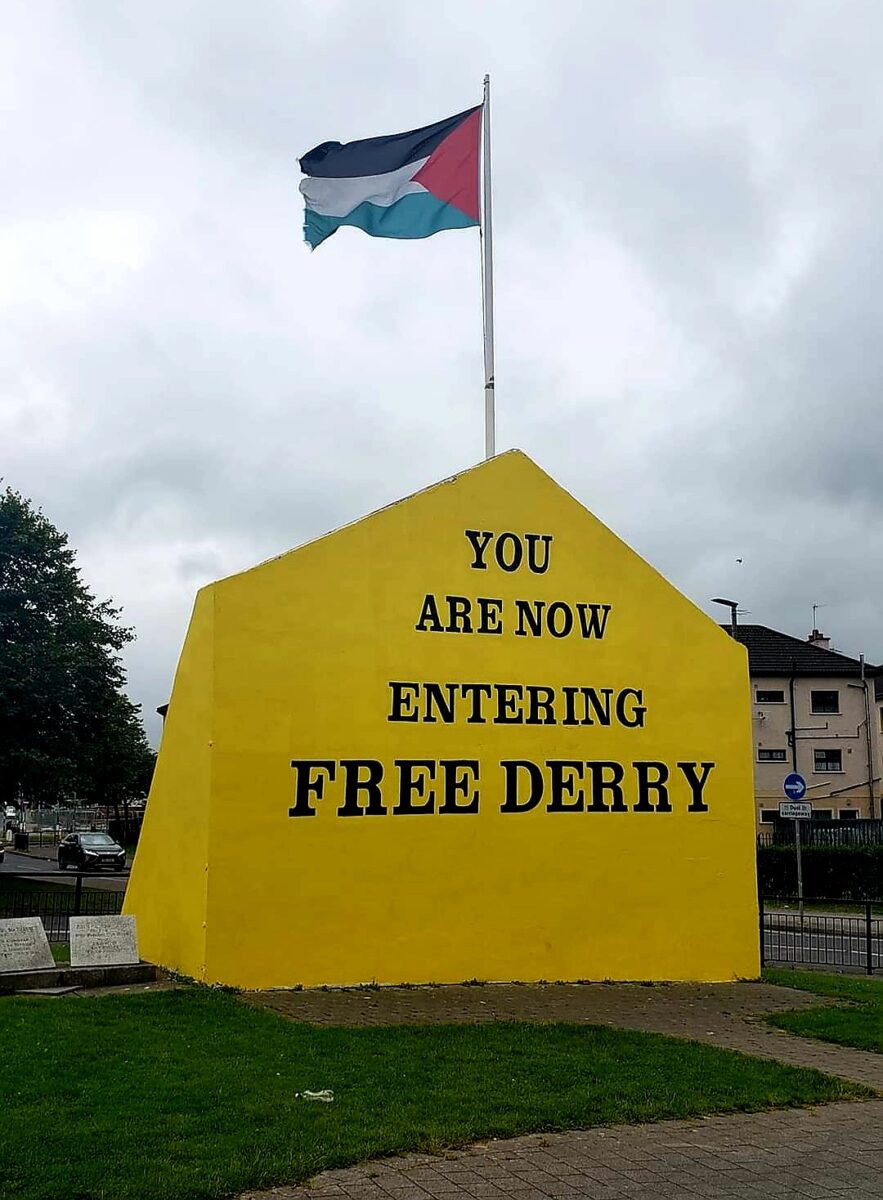
The Bogside
As 2022 ends, I realize that a lasting peace in Northern Ireland has endured nearly as long as The Troubles themselves. One may be tempted to assume these counterbalances the three decades of conflict and violence. But the civil unrest of the 1960s, 70s and 80s is not lost as those decades fade from the headlines. Derry’s story is well documented and preserved in the pavement, on the walls, and in the hearts of those still living in Bogside.
You will feel a deeper sense of gravity when you visit. All of Derry remembers. And around every corner is a reminder for the necessity for peace. Peace is not the opposite of war. It is the solution to war.
 The end of the year and the changing of seasons ushers in a holiday season for many people, with many different traditions– whether they be Jewish, Muslim or follow other religious beliefs. Christians, whether Catholic, Presbyterian or other Dissenters, all rejoice in the birth a Savior, recognized as the Prince of Peace. May the lights of this holy season guide you home, and may you have a sense of lasting peace, much like the story of Derry.
The end of the year and the changing of seasons ushers in a holiday season for many people, with many different traditions– whether they be Jewish, Muslim or follow other religious beliefs. Christians, whether Catholic, Presbyterian or other Dissenters, all rejoice in the birth a Savior, recognized as the Prince of Peace. May the lights of this holy season guide you home, and may you have a sense of lasting peace, much like the story of Derry.
*Elizabeth graduated from Galway City University with class honours in Irish Studies. Her postgraduate work focuses on the preservation of indigenous languages and promoting cultural tourism. She lives in Castle Shannon, a former Irish settlement in the South Hills of Pittsburgh, loves learning, and sharing the Irish language. She can be reached at [email protected].

Monthly newsmagazine serving people of Irish descent from Cleveland to Clearwater. We cover the movers, shakers & music makers each and every month.
Since our 2006 inception, iIrish has donated more than $376,000 to local and national charities.
GET UPDATES ON THE SERIOUS & THE SHENANIGANS!